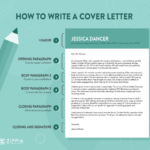Picture it: you have submitted your CV and got a call from your potential employer to attend a job interview. It is completely normal to be nervous before an interview, as you are meeting people that you want to impress.
Often, job interviews take place in a new environment where you will be asked numerous questions about yourself, and this can indeed be very nerve wracking.
Therefore, it is vital that you prepare for an interview will not only put you at ease, but also allow you to exude confidence, and potentially land the job.
Job interviews are an opportunity to convince your potential employer (face to face) that you are the right person for the job. You will need to assure the interviewer that you are what they are looking for, and essentially the missing piece to their puzzle.
Tips when preparing for a job interview
1. Do research on the company interviewing you: Before the interview, be sure to read the company’s website and learn about their business objectives. This will aid you in answering challenging questions, such as “How much do you know about this business?” This also shows the interviewer that you are highly interested in the company and the position, so much so that you did external research. Doing research on the company will also give you an idea of what type of people they hire, how they operate, and if you would be comfortable in that working environment.
2. Ensure that you are on time for the interview: Tardiness is never a great first impression; to avoid this, ensure that you have the correct physical address, contact number, and directions for the location of your interview. Ensure that you arrive on time (preferably 5 minutes before) and that you have a few moments to freshen up. If you are able to, be sure to visit the address a few days before the actual interview to familiarize yourself with the place and plan how long it would take you to get there.
3. Make sure that you know the name of the contact person and/ or the person you are meeting: This will allow you to be confident when addressing the company as you arrive for the interview. If you were contacted via call, be sure to write down the person’s name.
4. Dress professionally: It’s better to be overdressed for the job than under-dressed. Even if all the employees are wearing jeans, ensure that you look professional, smart and well groomed. Ensure that your outfit fits well and that your hair, makeup, and nails are neat.
5. Practice your interview at home: In front of a mirror, practice answers to commonly asked questions that your interviewer may ask, such as the curveball ” what is your biggest weakness?” Be sure to also prepare a brief list of questions that you may have for the interviewer such as what your role would be in the business, further information about the company, and workplace culture.
6. Prepare a self-selling sales pitch: This should be well prepared and about 30 seconds. Your sales pitch should describe who you are, what makes you unique, your strengths, and why you would be the best fit for this position. Emphasize how you can help the company and your value to the employer.
7. Be aware of your body language during the interview: As humans, we not only communicate verbally, but also through body language. On arrival, give a firm handshake whilst maintaining strong eye contact. During the interview, be sure to watch your posture by sitting up straight and with confidence, ensure your hands are folded neatly in your lap and that you are not fiddling, and continuously maintain eye contact. This is vital as job interviewers are able to pick up details about your character and personality based solely on your body language.
8. Remember to remain calm: As long as you have been honest with your CV and cover letter, there is truly no reason to be nervous. The interviewer called you in based on your ability and it is your chance to simply meet them face-to-face. There are no wrong answers that you can give during a job interview, as long as you remain calm and be 100% yourself.
9. Prepare answers to common questions: The interviewer will want to get to know you to see if you are a good fit for the position and the company. It’s a good idea to prepare your answers to some common interview questions, to make sure you don’t have to come up with an answer on the spot.
Think about your answers to the following questions before you enter the interview:
“Tell me about yourself”
“Why are you interested in working for this company?”
“What are your strengths and weaknesses?”
“What made you decide to apply for this position?”
“What’s something that you didn’t like about your last job?”
“Where do you see yourself in five years?”
“Describe a time when you had to meet a deadline”
“Describe a time you had to work with a team”
“Describe a time you had to deal with a problem customer”
10. Ask your own questions: At the end of the interview, it is very common for the interviewer to ask you if you have any questions for them. Even if you don’t have any burning questions, it is advisable to asks one or two questions to show your interest in the position. Some examples are ““What is the typical day-to-day like in the office?” or “When do you think you’ll be making your hiring decision?”
NOCHILL is on Social media platforms for more updates, follow our WhatsApp channel.



